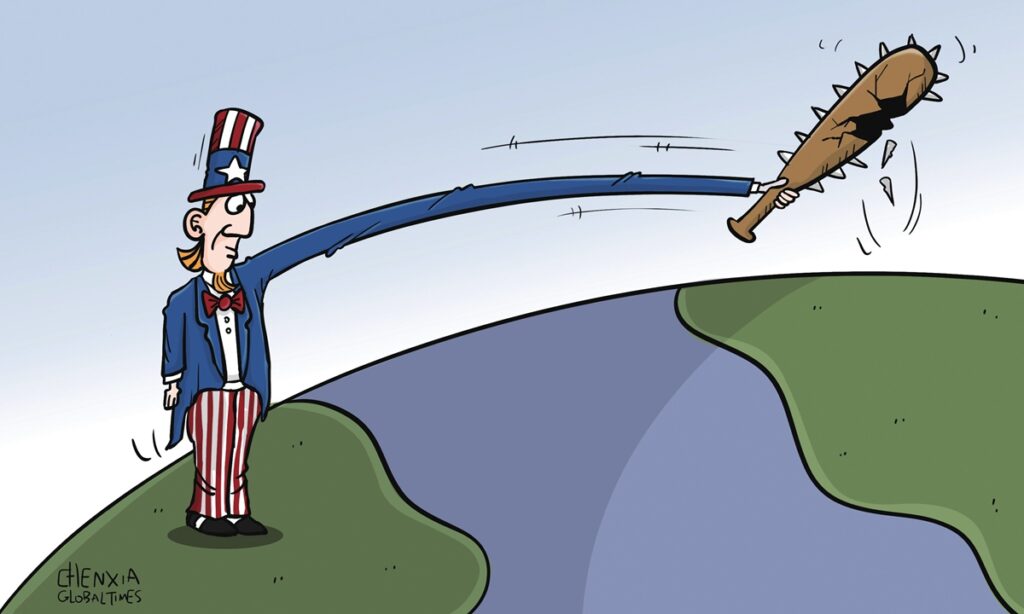The US Commerce Department said on Wednesday it has suspended the “export privileges” of a Belgian company and its owner for 180 days due to its alleged attempt to “send sensitive technology to China,” Reuters reported.
The US Commerce Department claimed that Hans De Geetere and Belgium-based Hasa-Invest bought or attempted to purchase accelerometers from a US firm on behalf of clients in China, but falsely told the US firm that the accelerometers were bound for clients in Europe, according to Reuters.
The Belgian company and its owner have not publicly commented on the US accusations as of press time on Thursday. And it is unclear whether the US Commerce Department accurately presented relevant information about the Belgium-based company’s alleged attempt to send accelerometers to China. However, it is worth noting that long-army jurisdiction in a wide range of areas has become as American as apple pie. It should also have become universal knowledge by now that the US’ broader bans on high-tech exports won’t just hurt Chinese firms, but also European, American and other multinationals.
Since former US president Donald Trump took office in 2017, the US has begun to take various measures to prevent China from conducting what had long been normal transactions in the tech sector. And such an ill-intentioned campaign has continued and could further intensify under current US President Joe Biden.
Within the US, the US export-controls process is now at the center of a debate over how much the US should continue to trade with China in the high-tech sector, and many US politicians are in favor of minimizing exports of sensitive technology, because they believe the US should give priority to national security over US commercial interests. However, these anti-China politicians may not realize what they suggest can have a great negative impact on US high-tech companies’ revenue and hinder the development of the US’ own technological strength.
The industrial structure of today’s world is built on a complex supply chain system. The US does have dominant advantages in certain high-end technological fields, but China is the world’s largest manufacturing base, which plays a key role in the global supply chain and serves as a “final customer” for many European and other multinational companies that import high-tech products.
If the US wants to achieve its ultimate goal of restricting exports of high-tech products to China, US politicians will have to launch an export ban on not only Chinese companies but also enterprises in the global supply chain. That’s why more European companies have been dragged into the crossfire of the US’ unreasonable high-tech export restrictions.
The US’ unilateral approach will be a step backward for globalization and will cause unbearable outcomes. Besides US-China bilateral trade, the further crackdown will likely extend to US, Europe and China trilateral or multilateral supply chains to impose tighter restrictions aimed at isolating China. Due to the tighter restrictions, US high-tech enterprises’ export market will be shrunk further. This will be a gradual process and will unfold step by step.
Tighter restrictions on US tech sales to China will backfire badly on the US because the UK, Germany, Japan, South Korea and other tech giants will step in to fill the void left by US companies. More importantly, China has attached great importance to independent innovation, and the sales of independently-developed high-tech products have been increasing in the Chinese markets.
If US high-tech companies want to survive from increasingly fierce international competition, they need export markets. The tighter the US government imposes restrictions on tech sales through long-arm jurisdiction, the fewer chances US high-tech companies will survive from global competition.
(Global Times)




